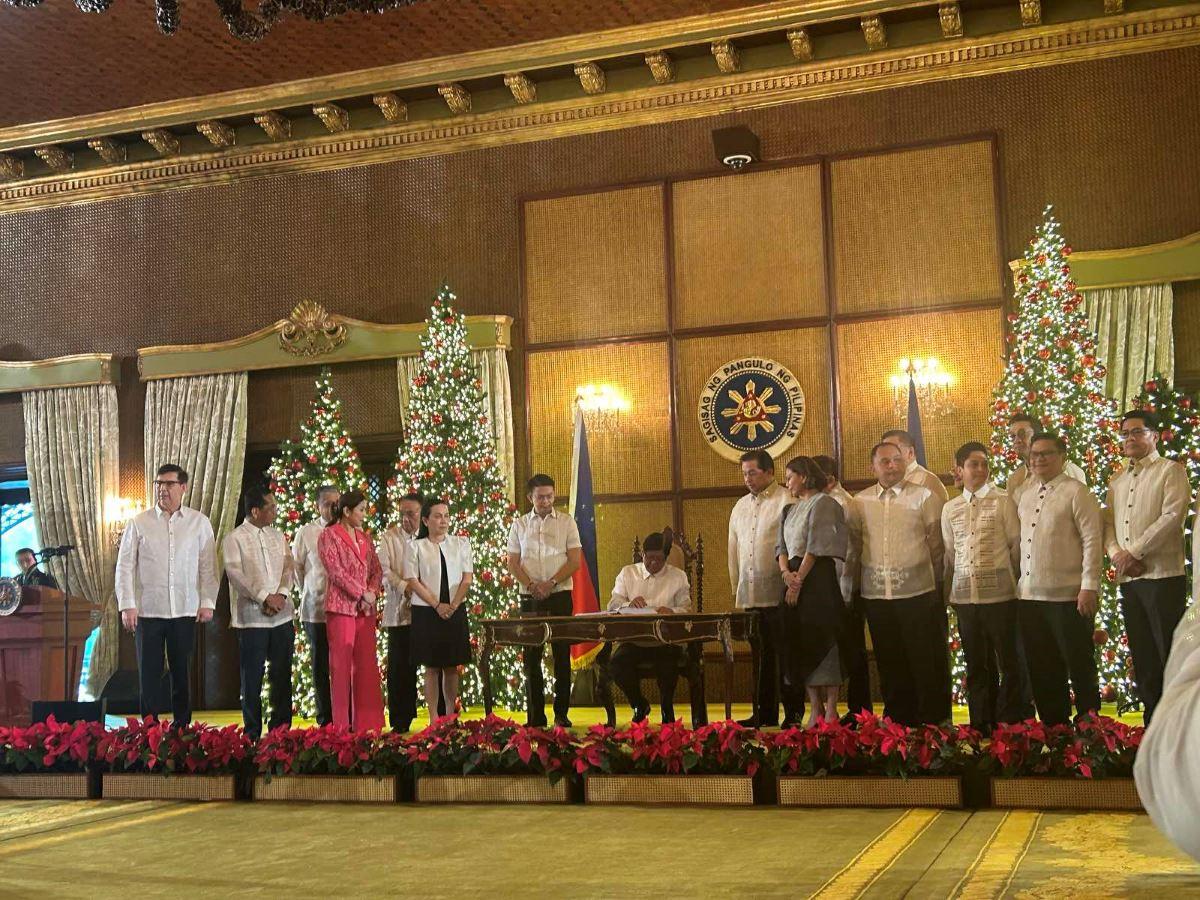President Ferdinand “Bongbong” Marcos Jr. signed the ₱6.326 trillion national budget for 2025 into law at Malacañang Palace, emphasizing fiscal responsibility. However, he vetoed ₱194 billion in line items that didn’t align with government priorities, including projects from the Department of Public Works and Highways (DPWH) and other unprogrammed appropriations, which had ballooned by 300%.
Why the Veto?
President Marcos explained that the veto ensures taxpayers’ money is spent wisely and aligns with the administration’s goals. He also highlighted the conditional implementation of certain programs like the Ayuda sa Kapos ang Kita Program (AKAP). The goal is to make assistance strategic and effective, avoiding misuse or duplication.
Key Budget Allocations
- Education Sector: ₱1.055 trillion for DepEd and related agencies, keeping education a top priority as mandated by the Constitution.
- DPWH: ₱1.007 trillion for infrastructure projects.
Despite the high allocation for education, lawmakers criticized reductions in the education budget and questioned the zero subsidy for PhilHealth, even as it holds substantial reserve funds.
PhilHealth’s Zero Subsidy
Finance Secretary Ralph Recto assured the public that PhilHealth has enough resources, citing over ₱600 billion in reserves. With earnings projected to surpass expenses in 2025, the government expects the insurer to operate without additional funding. However, monitoring will ensure these funds are spent efficiently, particularly on major illnesses.
Hosting ASEAN 2026
The Office of the President received an additional ₱5.2 billion to prepare for the 2026 ASEAN Summit, originally scheduled in Myanmar. Preparations for hosting this international event will commence in 2025.
Marcos’ Pledge
President Marcos vowed to prioritize social services like education and health while exercising prudence to avoid increasing the country’s deficit and debt. “The appropriation of public funds must not break the public trust,” he affirmed.
This budget, with its careful adjustments and priorities, aims to address pressing national issues while laying a foundation for long-term growth.

















